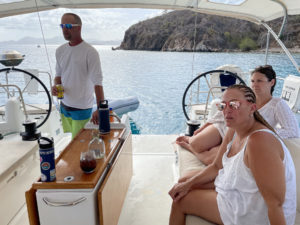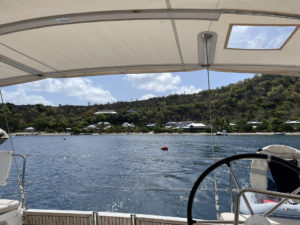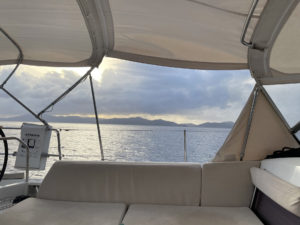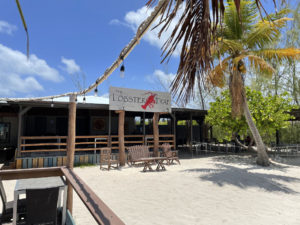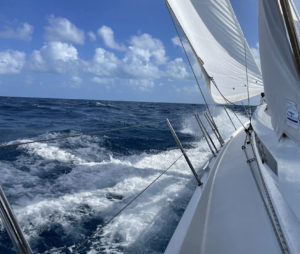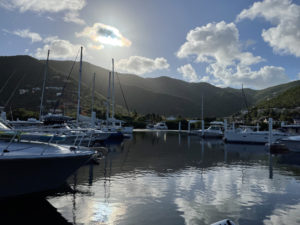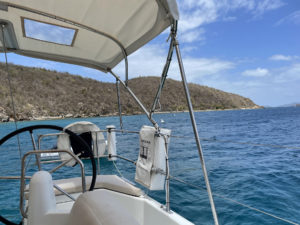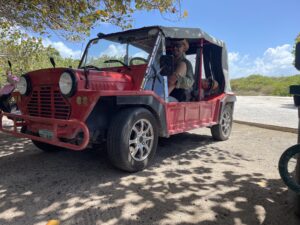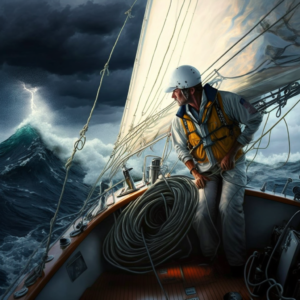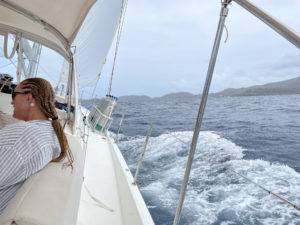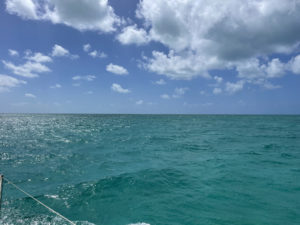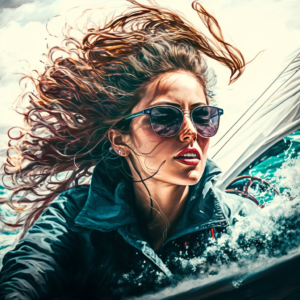Plan Your Charter!
Let us help you with your charter at no cost to you!
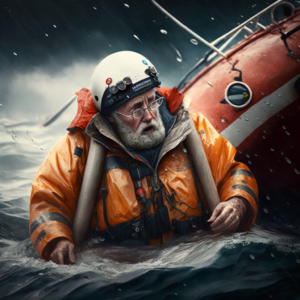 Any person overboard is a big problem. And while in your imagination it may not seem dangerous, a man overboard situation can be a big deal in calm water in a harbor, especially if the injury is involved. To have your skipper go over is a problem. A big one.
Any person overboard is a big problem. And while in your imagination it may not seem dangerous, a man overboard situation can be a big deal in calm water in a harbor, especially if the injury is involved. To have your skipper go over is a problem. A big one.
While very uncommon, it is always beneficial to practice these procedures in calm conditions to familiarize yourself with the process and ensure that you can execute them quickly and effectively in an emergency situation. When we say ‘practice’ that never means a real human in the water. That would equal an emergency situation. Don’t do that! Instead, use a fender or a buoy and try and maneuver the boat to it. This exercise will get you familiar with the boat, and the steps to take should your skipper be one to go over. If you go over, hold on tight, your skipper is on their way (hopefully) 😮
If you are a crew member on a boat and the captain falls overboard, it is important to take immediate action to mitigate risk and rescue the captain.
Suggested Emergency Steps
- Alert other crew members and passengers on board. Make sure everyone is aware of the situation and knows the location of the person in the water.
- Locate a life ring or buoy and throw it to the person. This will provide them with something to hold on to and make it easier for them to stay afloat.
- Assign a spotter or spotters to always point with their arm at the person NEVER taking their eyes off them. This let’s the helmsman do their job of steering the boat.
- Assign a helmsman: Many confuse the one who drives the boat to be the skipper. They might be, but at the very least they are a helmsman. Someone MUST step up to this task. Take action or find someone who will.
- If the boat has a radio, call for help. Contact the coast guard or other nearby boats to request assistance. Unless instructed otherwise, use channel 16.
- Prepare to take down the sails: The first step is to release the main sheet or the jib sheet to drop the sails. If you are using a sloop rig, release both sheets. If you are using a cutter rig, release the jib sheet. This will allow the sails to drop and prevent the boat from moving forward.
- Start the engine: With the sails down, the boat should be able to maneuver in the water. Start the engine to move the boat closer to the person in the water.
- Maneuver the boat close to the person in the water: Once the boat is close enough, use a life raft or other flotation device to reach the person in the water. It is best to try and stop windward of them (meaning the boat is between them and the wind) to protect them from the waves and wind.
- Check for injury: Once the person is back on board, check for injuries and administer first aid if necessary.
If a crew member falls overboard and is unable to get back on the boat on their own, there are several emergency options and techniques that can be used to rescue them.
These include:
- Life ring or buoy: Throwing a life ring or buoy to the person in the water will provide them with something to hold on to and make it easier for them to stay afloat.
- Life raft: If the person in the water is unable to reach the boat or the life ring, a life raft can be deployed to reach them. The raft can be paddled or rowed to the person in the water and they can be pulled on board.
- Life sling: A life sling is a buoyant device that can be thrown to a person in the water and then used to pull them back to the boat.
- Jackstay: A jackstay is a rope or cable that runs along the side of the boat and can be used to pull a person back on board.
- Rescue ladder: A ladder that can be lowered over the side of the boat to make it easier for the person in the water to climb back on board.
- Towing: If the person in the water is unable to climb back on board, the boat can be maneuvered close to them and they can be towed back to the boat using a rope or line.
- Professional help: If the person in the water is injured or unable to be rescued by the crew, it is important to call for the professional help from the coast guard or other rescue services.
It’s important to note that in some of these methods, the person in the water should wear a life jacket to ensure their safety and also to make it easier for the crew to pull them back on board. In addition, it’s always important to have emergency gear and a plan in place ahead of time, in case of such incidents. A well-prepared crew member should have knowledge about the emergency procedures, a man overboard procedure, the location of emergency gears, and how to use them.
More Articles On What To Expect In The British Virgin Islands
These articles aim to help control customer expectations when chartering on the British Virgin Islands. The pretty pictures of light blue water and tan attractive people don't always tell the full story. Here are some of the other things to expect. These are written from first-hand accounts. We've tried to identify the major things that have led to people having a negative experience. These articles are not meant to dissuade you from enjoying the British Virgin Islands. On the contrary. Instead, they are intended to arm you with the right information to maximize your excellent vacation time! They are organized by title, not by priority.
10 Things To Always Be Mindful Of When On Charter
1. Prioritize Safety Learn the Equipment: Before departure, conduct a safety drill to show all passengers where safety equipment is located (life vests, fire extinguishers, emergency flares, first aid kits). Weather Check: Regularly check weather reports and be prepared to adjust plans as conditions change. Use reliable apps like Windy or MyRadar for real-time updates.…
Attitude
Have you ever noticed that your mindset can often determine your experience? This is as true on land as it is on the high seas. Just as a skilled sailor adjusts their sails to catch the wind, so too must we adjust our attitudes to fully embrace the bare boat charter experience. Imagine your attitude…
Barracuda while Snorkeling
Have you ever glanced at the mirror-like surface of an azure ocean and wondered what enigmatic wonders lie beneath? Have you been magnetized by the allure of the underwater world, waiting to explore the spectrum of life that makes the sea its home? As you prepare for your bare boat charter voyage, we invite you…
Be Prepared For “Island Time”
Island time is a term used to describe the relaxed and laid-back pace of life found on many tropical islands. It is characterized by a slower sense of time, where deadlines are not as pressing and people tend to take things at a more leisurely pace. This philosophy of island time is about not forcing…
BVI Charter Costs
When planning a charter vacation, it’s important to understand that costs can vary greatly depending on a number of factors such as the season, demand, boat, and amenities. While some charter companies may offer packaged deals, it’s best to be prepared for all types of additional costs to avoid any surprises. When considering a charter,…
Chores
Chores are a big one. Who does what, who wants to do what, and how they get done are all things that can cause issues between people on a boat. Here are the common chores that need to be done on a boat. Deck cleaning Dishes Trash Cooking Dinghy cleaning (birds like to sit and…
Cleanliness
As if dishes and trash weren’t enough, yes, overall cleanliness on a boat is something you will not be able to hide from anyone or anyone from you. This is also a habit-based attitude that is hard to adjust. So while it helps to be mindful to pick up after yourself, many have a different…
Dishes
Doing dishes on a boat is more than just a chore—it’s a shared responsibility that can impact everything from water usage to crew morale. With limited freshwater reserves and space, it’s essential to approach dishwashing thoughtfully. Everyone has their own habits and preferences, but understanding the unique needs of life on a boat can prevent…
Extra Gear To Bring To The BVIs
When planning a bareboat charter vacation in the British Virgin Islands (BVI), there are some additional gear items that guests may want to consider bringing to enhance their experience and make the most of their time on the water. Here’s a list of some items that you might want to consider: Personal floatation devices (PFDs)…
Food
Before you embark on your adventure you need to know what the food situation is. Before you get into where you might eat, provisioning is a part of the charter, and often a hefty cost. With current prices, food for 5 people for a week may exceed $1500. Who is paying for the provisions? Who…
Gratuity
When visiting the British Virgin Islands (BVIs), it’s essential to remember that this paradise thrives on the service industry, where many locals depend on gratuities as a core part of their income. Tips aren’t just an afterthought; they’re a genuine gesture of appreciation that reflects the value of the service provided and the cultural norm…
Heads
By heads we mean toilet. The head on a boat is not like your toilet at home, or even in an RV (although RV living helps). Things going wrong with the head have been the core of some ruined trips. Most heads now do not have a manual pump handle to literally suck the waste…
Heat
In the name of knowing what to expect, you can expect heat. You can expect humidity above 70% and you can expect that makes you sweaty and sticky. Yes, with more heat and sweating you’ll break out more, get more zits and find it harder to not stink. Don’t let this be a deterrent to…
Hygiene
Wash your pits and your parts. Nobody likes a stinky boat mate. The Caribbean is hot and humid and sweating is part of the game. There is little you can do to escape this and enjoy the environment. Your clothes also take the brunt of this punishment. Where are you keeping your dirty laundry? Stinky…
Jellyfish
Be sure to bring vinegar and Benedryl on your trip! What the pictures of the beautiful blue waters and luscious reefs don’t show you are the jellyfish you’ll encounter. Jellyfish have no eyes and seem to aimlessly move around. This means there is little consideration for your presence if you are around one. The key…
Mini Moke!
The Caribbean island of Anegada, located in the British Virgin Islands, is known for its beautiful beaches and clear blue waters. But one of the best ways to experience the island is by renting a Mini Moke and exploring the island’s unique landscapes and hidden gems. The Mini Moke is a small, open-air vehicle that…
Safety Considerations
Safety is what allows you to have a great time. A person or the boat suffering damage or injury is one of the quickest ways to ruin a vacation. So look at it like Safety is your best and cheapest insurance policy to preserve your good time. Safety is a game everyone can and should…
Sea sickness
We take for granted our understanding of up and down. Our inner ear has little hairs inside it that react to fluid passing over them when we move. Those hairs then send signals to the brain to interpret your orientation. Sea sickness is when your inner ear becomes confused with all the signals given to…
The Basics To Be Aware Of
Here are some tips to protect yourself from the elements when visiting the British Virgin Islands. Each of these represents a portal to a world of pain, inconvenience and a robbed vacation. Sun Protection: Wear sunscreen with a high SPF and reapply it frequently, especially if you’re sweating or swimming. Wear a wide-brimmed hat and…
The Mornings
Mornings on a boat charter are more than just the start of a new day; they’re the foundation for the entire crew’s mood and energy. Whether it’s a well-rested, upbeat morning or a sluggish, irritable start, mornings can make or break the day’s vibe on board. Between adjusting to new surroundings, possible hangovers, dehydration, and…
Top 5 Hazards In The Ocean In The British Virgin Islands
The British Virgin Islands (BVIs) are known for their sparkling turquoise waters, vibrant marine life, and stunning coral reefs that attract swimmers, snorkelers, and divers from all over the world. But with all their beauty, the waters around the BVIs also come with their own set of potential hazards. Here’s an in-depth look at some…
Top Questions To Ask Yourself Before Chartering A Bareboat In the BVI
Here are some questions that tourists should ask themselves before chartering a bareboat in the British Virgin Islands: Do I have experience sailing and handling a boat of this size and type? Are all of the people on the charter party comfortable with the idea of sailing a bareboat and aware of the potential risks?…
Trash
Believe it or not trash and how to handle it can be a large friction point. First, it should go without saying, that trash should never be disposed of in the ocean. While there are specific laws around this, this will hold true while on charter in the BVIs. Many people feel it is okay…
Water Usage
Water usage on a boat needs to have everyone’s attention to it. The issue created with no fresh water is that you’ll incur costs to fill your tanks in both time and money. You’ll also have to dock, and depending you may find yourself waiting on others, filling their large tanks. If you lose half…
What to look for in your charter boat captain
Minimum Top Things To Look For Licensing and certification: The captain should be licensed and certified by the appropriate authority, such as the U.S. Coast Guard, to operate the type of vessel being chartered. Experience: The captain should have significant experience operating the type of vessel being chartered, as well as experience navigating the area…
You Are On The Ocean!
First you must be safe. Then you must ensure you remain safe. Then you can have a good time. One of the biggest things overlooked when going to the British Virgin Islands is that you are ON THE OCEAN. Always respect the fact you will be living on a boat on the largest, most powerful…

